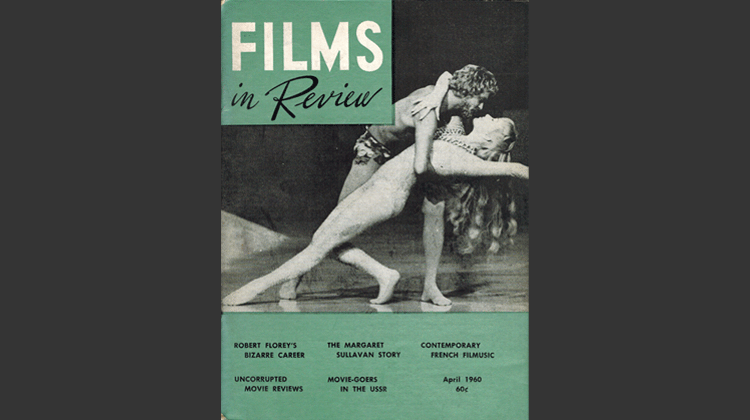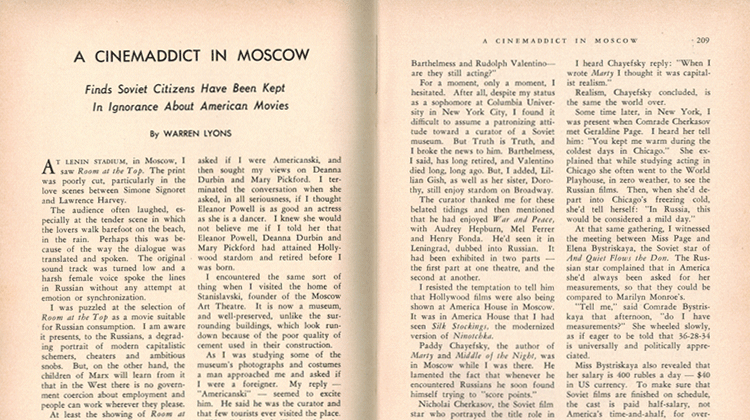On the eve of the first Olympic Games to be held in Russia in a generation, an account from an American cinephile in Moscow during the Cold War.
The relationship between the United States and Russia has long been a study in contrasts. This article by a Columbia University sophomore conveys a sense of fascinated confusion which feels apropos today, as we read about half-finished hotels sitting vacant alongside majestic multi-billion dollar stadiums in Sochi. The following is excerpted from an article that was first published in Films in Review magazine in April, 1960.
***
A Cinema Addict in Moscow
By Warren Lyons
At Lenin Stadium, in Moscow, I saw Room at the Top. The print was poorly cut, particularly in the love scenes between Simone Signoret and Lawrence Harvey.
The audience often laughed, especially at the tender scene in which the lovers walk barefoot on the beach, in the rain. Perhaps this was because of the way the dialogue was translated and spoken. The original sound track was turned low and a harsh female voice spoke the lines in Russian without any attempt at emotion or synchronization.
To make sure that Soviet films are finished on schedule, the cast is paid half-salary, not America’s time-and-a-half, for over-time.
I was puzzled at the selection of Room at the Top as a movie suitable for Russian consumption. I am aware it presents, to the Russians, a degrading portrait of modern capitalistic schemers, cheaters and ambitious snobs. But, on the other hand, the children of Marx will learn from it that in the West there is no government coercion about employment and people can work wherever they please.
…I witnessed the meeting of [Geraldine] Page and Elena Bystriskaya, the Soviet star of And Quiet Flows the Don…Miss Bystriskaya also revealed that her salery is 400 rubles a day — $40 in US currency. To make sure that Soviet films are finished on schedule, the cast is paid half-salary, not America’s time-and-a-half, for over-time.
During the seven weeks I spent in Russia I kept wondering about the Russians’ lack of information about American movies. The mystery finally was solved in a book shop on Gorki Street, in Moscow. I asked if there were any books dealing with American films shown in the Soviet Union.
“I’m sorry, sir, but we do not carry books about America,” said the clerk. “We only carry books dealing with democratic countries.”
“By democratic countries,” I asked, “you mean countries like Hungary, Czechoslovakia, Rumania and Poland?”
“Yes,” said the clerk, “real democratic countries.”


